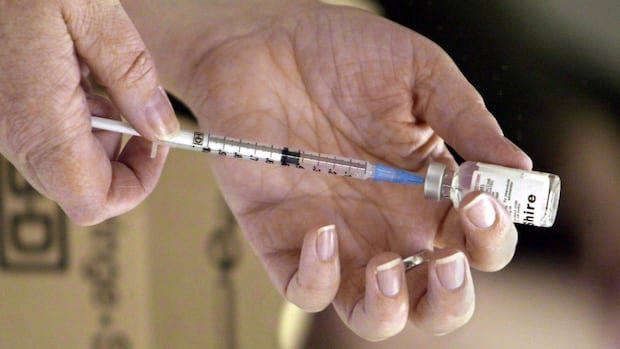After years of advancements, childhood vaccination rates are showing signs of slowing down or declining globally, including in Canada, according to a recent study published in The Lancet. The study, which analyzed data from over 1,000 sources across 204 countries and territories between 1980 and 2023, revealed significant progress in vaccine coverage against diseases like measles, polio, and pertussis, more than doubling during the period. However, the study noted that progress began to stall even before the onset of the COVID-19 pandemic.
Dr. Jonathan Mosser, an assistant professor at the University of Washington’s Institute for Health Metrics and Evaluation and one of the study’s co-authors, highlighted that measles vaccine coverage experienced a decline in about half of the countries in the Americas and high-income countries between 2010 and 2019. The pandemic further exacerbated the situation, resulting in over 15 million children worldwide missing routine vaccinations between 2020 and 2023.
Dr. Mosser emphasized that the global vaccination landscape never fully recovered to pre-pandemic levels, particularly impacting regions with low vaccine coverage before COVID-19, such as countries in sub-Saharan Africa. Millions of children in the region are estimated to have missed essential vaccines like those for polio, pneumococcal disease, and rotavirus.
The study revealed existing challenges related to global vaccination inequalities, with many low- and middle-income countries facing significantly lower coverage compared to high-income nations. Dr. Mosser mentioned that reasons for the decline in vaccination rates vary from geopolitical instability and supply chain issues in some regions to vaccine misinformation and hesitancy in many high-income countries.
In Canada, Dr. Mosser noted a drop in vaccine coverage for most shots compared to the early 2000s. While there have been slight increases in uptake for certain vaccines, like the first dose of the measles, mumps, and rubella (MMR) vaccine, they have not been sufficient to prevent outbreaks. Vaccination rates for measles in 2023 were below the herd immunity threshold, further compounded by vaccine misinformation and hesitancy in high-income countries like Canada.
Dr. Mosser stressed the importance of implementing new strategies to address vaccine hesitancy and disparities in coverage based on factors like socioeconomic status, location, race, or religion. Public Health Agency of Canada is actively researching reasons for vaccine hesitancy and developing evidence-based campaigns to support healthcare providers dealing with such challenges.
Dr. Mahli Brindamour, a pediatrician in Saskatoon, highlighted the interconnectedness of global vaccination efforts and emphasized the need to support vaccination campaigns worldwide to protect populations across borders. Dr. Gabriel Fabreau, a general internal medicine specialist in Calgary, suggested practical solutions such as enhancing pre-departure vaccination programs and facilitating vaccine record-sharing to improve vaccination coverage, especially among newcomer populations.

